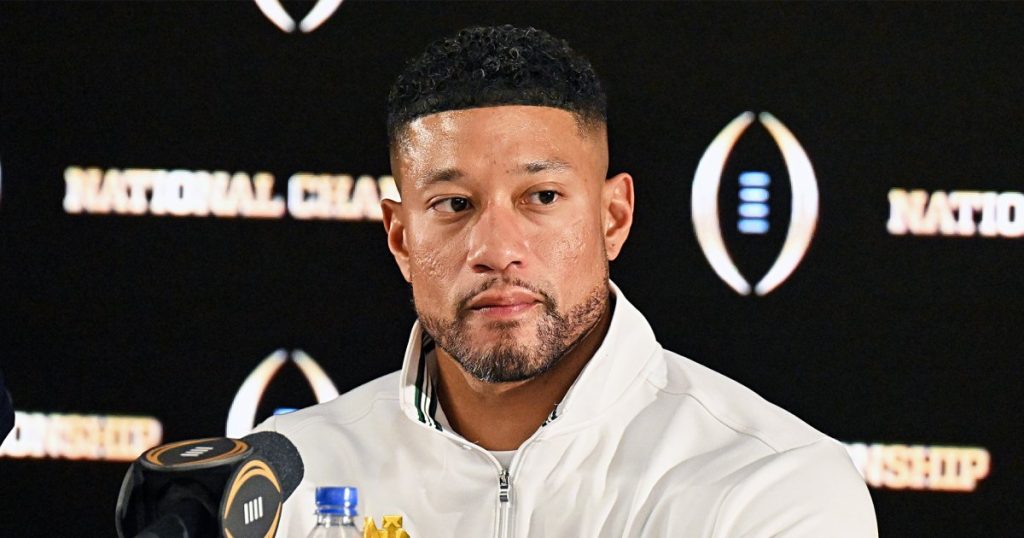Paragraph 1: Post-Game Analysis and Acceptance of Responsibility
Following Notre Dame’s defeat to Ohio State in the College Football Playoff National Championship Game, head coach Marcus Freeman provided a candid assessment of the team’s performance. He highlighted the detrimental impact of critical mistakes against a formidable opponent, emphasizing the communication breakdowns that contributed to their downfall. Freeman acknowledged his responsibility for the team’s shortcomings, stating that the onus of preparation fell squarely on his shoulders. While expressing disappointment in the outcome, he commended his players for their unwavering effort and commitment throughout the game.
Paragraph 2: The Controversial Field Goal Decision
One of the most debated moments of the game was Freeman’s decision to opt for a field goal attempt in the fourth quarter, with Notre Dame trailing 31-15. Facing a 4th-and-goal situation from the 9-yard line, Freeman chose to kick rather than go for the touchdown. The subsequent missed field goal solidified Ohio State’s advantage and drew criticism from some quarters. Freeman explained his rationale, emphasizing the higher probability of converting a 13-point deficit into a one-possession game compared to a 16-point deficit. He reasoned that a shorter yardage situation would have warranted a more aggressive approach, but the 9-yard distance made the field goal attempt the more prudent choice in his assessment.
Paragraph 3: Consoling a Disheartened Team
In the aftermath of the loss, which dashed Notre Dame’s hopes of securing their first national title since 1988, Freeman addressed his dejected players with words of support and admiration. Recognizing the emotional toll of defeat, he acknowledged the difficulty of finding the right words to comfort a team that had poured their hearts and souls into the season. He expressed his love and pride for his players, commending their unwavering dedication and resilience. Freeman emphasized that their performance had sent a powerful message about selflessness, hard work, and prioritizing the collective good.
Paragraph 4: Emphasizing Selflessness and Teamwork
Freeman consistently lauded his team’s selflessness throughout the season, underscoring its significance as a life lesson that transcended the realm of football. He viewed this quality as a cornerstone of their identity and a testament to their commitment to each other and the university. During the post-game interview, he reiterated this sentiment, highlighting how the players had consistently put the needs of the team above their individual aspirations. This unwavering commitment to their shared goals, even in the face of adversity, had fostered a strong sense of unity and mutual respect within the team.
Paragraph 5: The Leadership that Drove Notre Dame’s Season
The culture of selflessness that permeated the Notre Dame team stemmed from the exemplary leadership within its ranks. Freeman praised the team’s leaders for consistently reinforcing the message of unity and collective responsibility. These leaders served as role models, inspiring their teammates to prioritize the greater good and work towards a common purpose. Their influence created an environment where players felt empowered to support each other and embrace the principles of teamwork and self-sacrifice.
Paragraph 6: Reflections on a Season of Growth and Resilience
While the loss in the National Championship Game undoubtedly brought disappointment, the season as a whole represented a significant step forward for the Notre Dame program. The team’s unwavering commitment to selflessness, hard work, and leadership laid the foundation for future success. Despite falling short of their ultimate goal, the players demonstrated resilience and character that extended beyond the football field. The lessons learned from this season, particularly the importance of teamwork and selflessness, will undoubtedly serve them well in their future endeavors.


